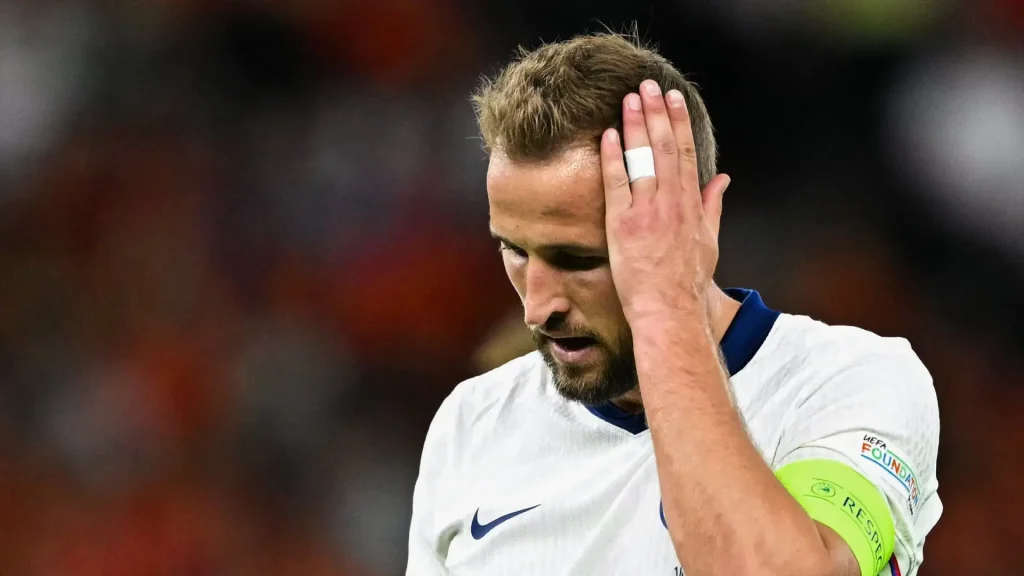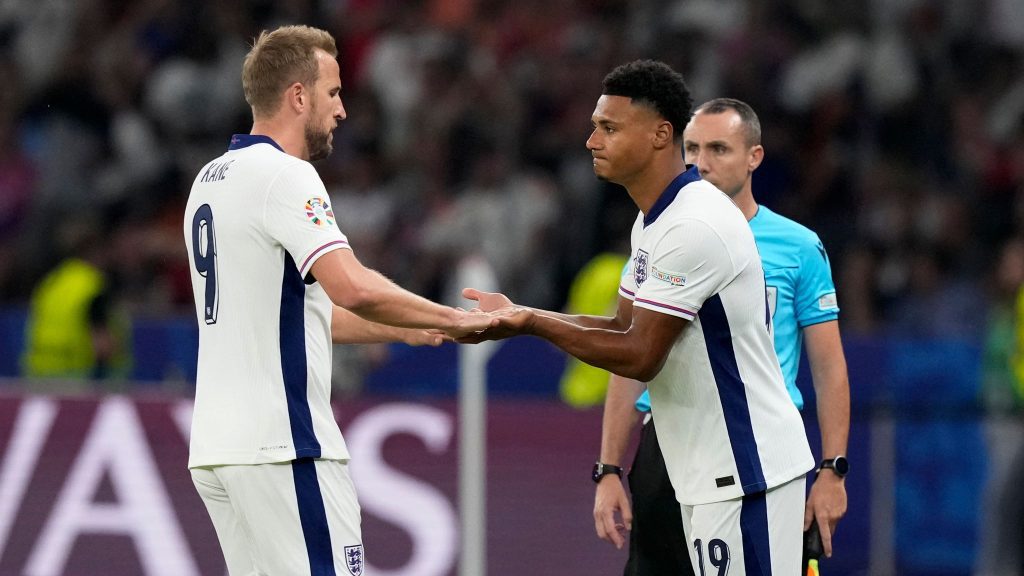Harry Kane cut a lonely figure as England fell at the final hurdle of EURO 2024.
As Harry Kane handed over the captain’s armband to Kyle Walker and made way for Ollie Watkins, it marked a symbolic moment in the striker’s career. Despite his impressive individual achievements, Kane’s inability to lead England to victory raises questions about his role in the team’s future.

Kane’s dedication and skill have been instrumental in England’s progress, but the team’s evolution may require a new and different profile of striker to take them to the next level. The emergence of dynamic attackers like Cole Palmer and Watkins presents an opportunity for England to transition into a new era that prioritizes speed, agility, and creativity.
While Kane’s strengths lie in his clinical finishing, link-up play, and aerial ability, the modern game demands more. The young strikers offer a different dimension, one that is better suited to the high-intensity, possession-based football that has become the hallmark of successful teams.

As England looks to the future, it may be time for Harry Kane to pass the torch and let the young strikers shine. This isn’t a reflection on Kane’s skills, but rather a recognition that the team’s needs have shifted. England will always value Kane’s experience and leadership, but they must now embrace change and entrust the next generation with the responsibility of leading the team forward.
The sight of Harry Kane handing over the armband may have been a symbolic moment, but it also represents a potential turning point in England’s history – one that could mark the beginning of a new era in English football.



